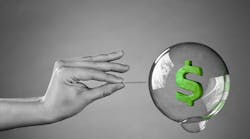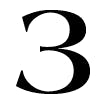By Lauren Burns, Associate Editor
March 18, 2013
Three in five dentists will be fraud victims in their careers. The financial and emotional costs of embezzlement are severe. Notwithstanding that there are many options for stealing from a dentist, the behavior of thieves is highly predictable. Thieves work extra hours, refuse to take vacation, show extreme territoriality, resist involvement of outside consultants, and attempt to isolate the dentist from outside communication. Published studies suggest that more than two-thirds of embezzlement is uncovered by behavioral (versus financial) clues. Dentists need be aware of this problem and collect, process, and respond decisively to the behavioral indicia of embezzlement.
-David Harris, ProsperidentI track numbers on over-the-counter collections or what you collect at the time of service every day. This number is crucial to the health of the practice. Over-the-counter collections start with accurate treatment plan estimates, firm financial arrangements, and then asking for payment before the patient walks out the door. When you collect more over-the-counter you also save money and help the environment by not having to send the patient a billing statement and having to make those pesky collection calls. Also, your money is worth more today than it is 30, 60, or 90 days from now – period!
-Dayna Johnson, Rae Dental Management
-Tom Limoli, Tom Limoli and Associates
In challenging times, an ideal compensation model should be simple and motivating. Each team member must understand how they affect their future wage potential and be invested in the accomplishment of the practice’s goals. Your model for wage and reward must be black and white, in order to truly inspire continuous improvement. The primary elements are:
- Compensation/reward must be competitive with what the market is paying.
- Compensation increases or rewards must come from increased profitability; otherwise it comes from the owner’s pocketbook.
- Potential increases and rewards are earned when a team member demonstrates new skills and results.
The staff deserves to be acknowledged, appreciated, and rewarded for their efforts in all economies! They are the secret to your success.
-Amy Morgan, Pride Institute
-Jim Philhower, Henry Schein DentalKnow your numbers. Just as your temperature can tell you if you are ill, the numbers in your practice can do the same. If a doctor knows where to retrieve his numbers from in his practice management system and how to read them, he can understand the health of his practice. It is also important to know what the benchmarks are for different numbers to know the temperature of the practice. It is not enough to let someone else read and interrupt your numbers. There is a treasure chest of reports in your software – explore them!
-Marsha Pilgrim, MSP Consulting
Too many practices are cutting fees – and if they’re not cutting fees, they’re at least apologizing for them or dancing around the topic with their patients. Instead of avoiding the topic, all practices need to train their teams to do an outstanding job of explaining the value of a dollar. Dentistry is not just about teeth and gums – it’s about improving the quality of patients’ lives. A dental procedure is worth whatever the patient thinks it is worth. Successful dental offices imbue procedures with value and stimulate strong case acceptance through a protocol that respects and educates patients. My message when I consult with offices: you are worth the fees you charge. Period.
-David Schwab, David Schwab & AssociatesThis year, the new ADA claim form has an area for a diagnostic code. Most offices do not use a diagnostic code and dental insurance companies do not require them, but change is always on the horizon, so you should start to prepare and learn the skills you’ll need. The use of diagnostic codes is used on medical insurance forms and many offices are now facing a large learning curve in order to work with diagnostic codes. The trick to diagnosing is to process the questions and tests, along with your experience. Consultations with other providers and specialists both in the dental and medical field may be sought. All of these will help you make your final diagnosis.
-Christine Taxin, Links2Success
-Julie Weir, Julie Weir Management Consulting, Ltd.
Top 10 medically billable procedures:
- Any traumatic injury to the mouth and all associated oral and dental procedures
- Exams and consultations when oral cancer screening is done, and in preparation for any other medically billable procedure
- Emergency treatment of oral inflammation and oral infections
- Diagnostic, radiographic, and surgical or healing stents
- Radiographs for screening and diagnostic purposes
- Biopsies and excisions
- Extractions of all impacted teeth and extractions recommended by a physician
- Surgical procedures not associated with traumatic injury, and associated anesthesia
- Both interim and final prostheses in case of traumatic injury or medical condition
- Appliances fabricated for bruxism, temporo-mandibular dysfunction, sleep apnea, snoring, palatal expansion, habit-breaking, etc.
-Dr. Olya Zahrebelny, The Z Group LLC


















